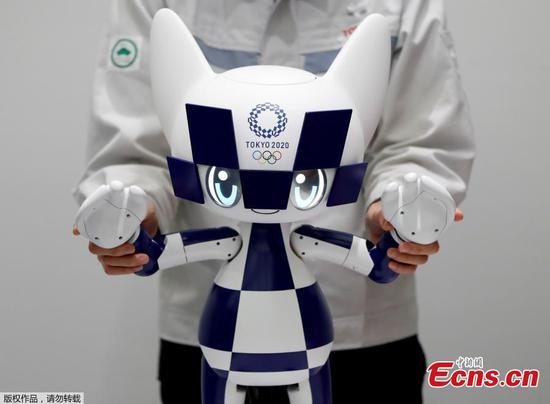Scientists from China and the U.S. have printed for the first time a new type of magnetic liquid droplets, with liquid fluidity and permanent magnetism using an all-liquid 3D technology, a finding researchers say could lead to a revolutionary class of printable liquid devices.
The study was published on Thursday in the journal Science by a team of scientists at the Department of Energy's Lawrence Berkeley National Laboratory (Berkeley Lab), including the paper's lead author Liu Xubo from the Beijing University of Chemical Technology.
The paper, titled Reconfigurable Ferromagnetic Liquid Droplets, said the findings can inspire studies on active matter, energy-dissipative assemblies and programmable liquid constructs, according to Science.
The new liquid magnetic fluid drops will be able to provide new materials for 3D-printable magnetic liquid devices such as flexible electronics, liquid robotics or artificial cells that can carry targeted drug therapies to diseased cells.
The research team printed one-millimeter droplets from ferrofluid containing 20-nanometers-diameter iron-oxide nanoparticles, Berkeley Lab reported on its website.
At the nanoscale level, the traditional ferromagnetic fluid itself does not have magnetic poles. It only shows specific magnetism under an external magnetic field. The new magnetic droplet material does not require an external magnetic field to behave like a solid magnet while it remains liquid.
"The liquid droplets can be easily reconfigured into different shapes while preserving the magnetic properties of solid ferromagnets with classic north-south dipole interactions," read the research paper.
Due to its special physical nature, ferrofluid is used in electronic equipment, medical devices, mechanical engineering and material science research. The new ferromagnetic droplets are expected to be used in more scenarios in the future, such as magnetically-controlled robots that can deliver drugs inside the human body and controllable liquid microreactors.
"We've made a new material that is both liquid and magnetic. No one has ever observed this before," said Tom Russell, a scientist at Berkeley Lab and professor at the University of Massachusetts, Amherst, who led the study, according to Berkeley Lab's website. "This opens the door to a new area of science in magnetic soft matter."


















































